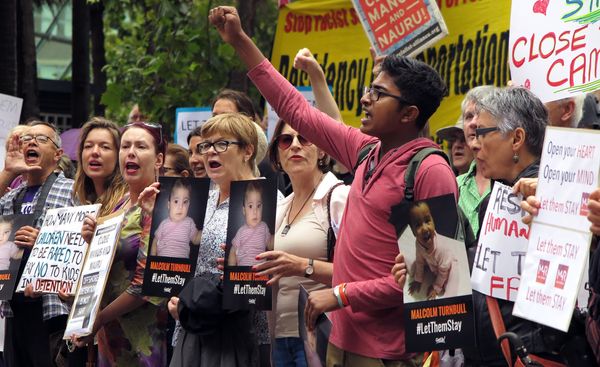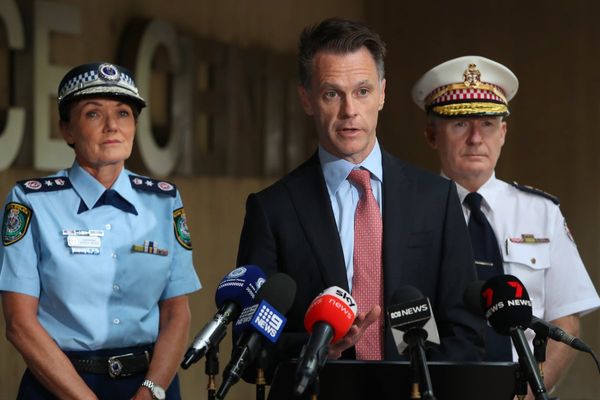
Birmingham (United Kingdom) (AFP) - Britain's beleaguered finance minister on Monday announced a dramatic U-turn on a tax cut unveiled as part of an economic package that has bombed with the markets, electorate and his party.
The abrupt change of course by Chancellor of the Exchequer Kwasi Kwarteng, and Prime Minister Liz Truss, raised questions about their right-wing project less than a month after she succeeded Boris Johnson.
"We get it, and we have listened," Kwarteng said on Twitter, announcing that he would no longer be scrapping the 45 percent top rate of income tax levied on the highest earners.
Their plan also comprises axing a cap on bankers' bonuses and reversing a planned rise in corporation tax, as well as a recent hike in national insurance contributions.
At the same time, they have refused to rule out cuts to spending and benefits in the middle of Britain's worst cost-of-living crisis in generations.
The perceived unfairness of the package has ignited a political storm as Truss's Conservatives gather for their annual conference in Birmingham.
On the markets, the intention to pay for the tax cuts with billions more in extra borrowing had sent the pound tumbling and UK government bond yields soaring.
The pound rebounded Monday as Kwarteng reversed course, telling BBC television from Birmingham that the focus on the top rate of tax had become a "massive distraction".
But asked if he had considered resigning, he said: "Not at all."
"I'm very pleased that we've decided not to proceed with that because it was drowning out the elements of an excellent plan," he insisted, pointing to a popular if costly scheme to cap energy bills.
'Grossly insensitive'
Later Monday at the Tory conference, Kwarteng had been due to say: "We must stay the course.I am confident our plan is the right one."
Instead, the finance chief was hastily rewriting his speech with the four-day gathering thrown into disarray.
On Sunday, Truss admitted communication errors in how the economic package had been presented on September 23, without conceding the need for any changes.
Asked if she was "absolutely committed" to abolishing the top tax rate, the prime minister -- only in the role since September 6 -- replied emphatically "yes".
Less than 24 hours later, she had changed her tune.
"Our focus now is on building a high growth economy that funds world-class public services, boosts wages, and creates opportunities across the country," she tweeted moments after Kwarteng announced the reversal.
Out of a total tax package worth £45 billion ($50 billion), the top rate cut would have cost some £2 billion -- relatively small, but outsized for its political impact.
Tory MPs who backed former finance minister Rishi Sunak -- Truss's rival in the recent Tory leadership race -- had threatened to vote it down, raising the prospect of a major battle in the House of Commons.
Grant Shapps, who was refused a cabinet job by Truss, welcomed her scrapping the tax cut, which he told BBC radio had been planned with "grossly insensitive timing".
Shapps also hit out at threats made by the government to fire any Tory MPs who voted against the plan -- which also drew a caustic reception from others.
Champagne reception
Truss told the BBC she had not discussed axing the high-earners' tax band with her cabinet, and appeared to distance herself from the move by claiming "it was a decision that the chancellor made".
With the U-turn, the stakes have soared for her as she prepares to close the party conference with a keynote speech on Wednesday.
One YouGov survey Friday found 51 percent of Britons think she should resign -- and 54 percent want Kwarteng to go.
Several other polls in recent days showed a Labour lead of up to 33 points over the Tories -- its biggest since the heyday of former Labour prime minister Tony Blair in the late 1990s.
Labour's finance spokeswoman Rachel Reeves said the climbdown "comes too late for the families who will pay higher mortgages and higher prices for years to come" as a result of the recent market turmoil.
"The Tories have destroyed their economic credibility and damaged trust in the British economy," she said.
Kwarteng, who used to work for a hedge fund, meanwhile expressed regret after it emerged that following the unveiling of his "mini-budget", he had attended a champagne reception with financiers as the pound cratered.
Interviewed on LBC radio, Kwarteng said that "with hindsight it probably wasn't the best day to go".







